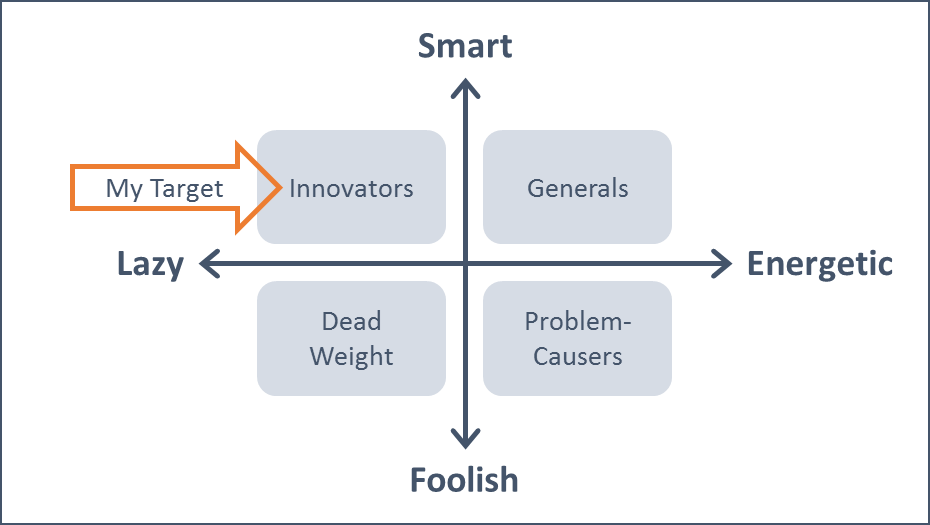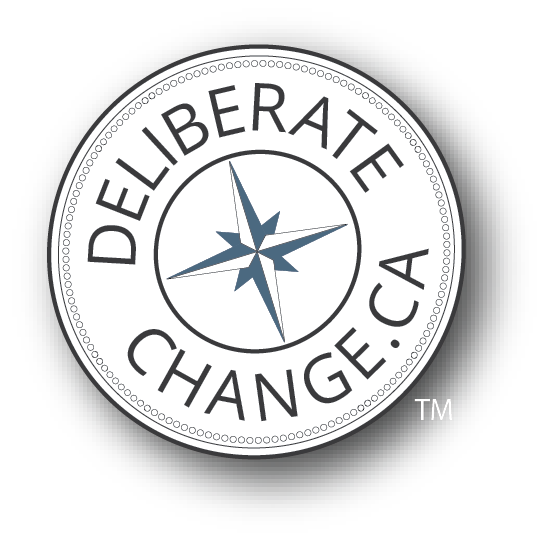 Everybody loves a hypocrite. Everybody also loves sarcasm. But perhaps more perceptively, everybody is a hypocrite, at least once in a while. Sometimes more often than not. And so, this week I admit that I, too, am a hypocrite. And it bothers me. So let’s journey together to break down why, as well as what I plan to do about it, and how you can do the same.
Everybody loves a hypocrite. Everybody also loves sarcasm. But perhaps more perceptively, everybody is a hypocrite, at least once in a while. Sometimes more often than not. And so, this week I admit that I, too, am a hypocrite. And it bothers me. So let’s journey together to break down why, as well as what I plan to do about it, and how you can do the same.
First off, though, what exactly is hypocrisy and why is it bad? Well, simply put, hypocrisy is when you say one thing and do something else. Lying. Deception. Being driven largely by ego and image instead of truth and reality.
People don’t like hypocrisy because they don’t like being lied to or deceived. They want others to be truthful and open with them, so that they can trust the other person and rely on them. But then, ironically, many of those same people will exaggerate, bend the truth, and overcommit themselves, resulting in their own hypocritical behaviours.
Sometimes these characteristics and behaviours are deliberate and planned. Sometimes they’re just a result of changing circumstances. And sometimes they’re a result from an internal fight-or-flight self-preservation reaction. Regardless, it’s often easier to spot in others and harder to spot in ourselves.
So let’s work together to throw away the mask and eradicate hypocrisy!
Real-World Examples of Hypocrisy
Here are some real-world examples of hypocrisy that I have personally observed:
- Pretty much any time someone says “Yes, I’ll do that”, knowing full well that they have no intention of actually doing that
- When the boss or the company says they value X but then measure Y, which contradicts X; you value what you measure and what you actually do, not what you say you value or what you say you will do
- The politician who promises the world (“I will balance the budget”) and then blames his predecessor for “unforeseen” problems that prohibit him from carrying out his promises (“the deficit is worse than I thought”), in spite of the fact that pretty much the entire electorate was aware of the situation
- Story spinning (“I did not raise taxes; I instituted a mandatory health care ‘premium’ that you calculate based on your income and pay along with your income tax…”)
- People who claim to follow a particular religion but then routinely act in contradiction to that religion’s primary teachings
- Fake humility (“Woe is me; I am so tired from helping all of those people with ________ today”)
- Me

A Special Note About FIRE Content Creators
I’d like to make special mention about the FIRE (Financial Independence / Retire Early) community.
Many who are FIRE’d, including some bloggers, vloggers, and authors (even way back in the 1990s), claim to be “retired”, but some of these folks really just changed careers from being a 9-5 employee to being self-employed content creators.
BUT, in my opinion, that is not a problem at all for those who are open about what’s going on. If they choose to use the word “retired” but they acknowledge that they’re still working for money, who cares? It’s only those who hide or don’t disclose their income sources who are being misleading.
Ask yourself this: If you were to quit working full-time and then spend your new-found time volunteering every day, are you retired? Now what if you received some minor stipend from that volunteer organization? What if you got hired on as staff at that same organization, part-time or even full-time? Are you retired in any of those cases? All cases? Does it even matter??
The key is more of the Financial Independence angle, combined with openness and honesty. Be deliberate about the life you want to live, and then go live it. In particular, if you are FI or nearly-FI, then you have enough money to do whatever you want. And if that involves continuing to work for money at something you’re passionate about (and being up front about it), then all the power to you.
Be deliberate about the life you want to live, and then go live it.
If you’d like to keep on reading about this specific topic (after you finish reading DeliberateChange.ca of course!), here are some real-world examples of exactly that openness, done right:
- Mr. Money Mustache’s Manifesto
- RetireBy40’s Manifesto
- Our Next Life’s Manifesto
- Matt McKeever’s YouTube Manifesto
My Turn: I am a Hypocrite
Ok, enough rambling. My turn to be open and upfront.
Blog Monetization

First off, I don’t make any money off this blog, nor do I have any immediate plans to change that.
If I ever change that, I’ll be sure to let you know. The only possible minor exception is that, from time to time, I do link over to my wife’s website and Etsy shop. But these are always in the context of the post content or image credits and so on. I treat it no differently than any of the other external links I include.
So if not for money, why on earth am I doing this? Well, I have two primary motivations for writing:
- Because I enjoy periodic writing and the uniquely creative outlet it provides
- Because I want to help other people with financial and lifestyle decisions that I’m also going through
I also have a secondary motivation, which is that you never know what kinds of seeds are being planted, or what connections and friendships and opportunities will arise from what I’m doing. But honestly, that is secondary to the main points above.
Maybe this isn’t hypocritical at all, but I include it as part of my openness policy.
Overcommitment
I am way to busy with too many things.
Even when I was a kid, I hated being bored. I also like to help and give back, and I have thankfully been blessed with several abilities and skills in this area. Rather than shove all of that “look at me” stuff in your face, if you really want to know, head over to my LinkedIn page and scroll down to the volunteer section.
Sometimes I hide behind a combination of fake and real confidence. Why? Like many other people who won’t admit it, I do suffer from insecurity and exclusion in certain areas of my life. One of the ways I’ve learned to be included is to always say yes, and to then do a wicked awesome job at whatever it is. And thus, combined with my desire to give back, I find myself overstretched.
And here’s where the hypocrisy comes in.
One of my most highly-held values is that of dependability. I will always try to do what I say and follow through with things. And when I cannot do it, it bothers me. Of course sometimes I forget, or change my mind, or try and delegate to others, but generally speaking I do my best to avoid that.
And yet I go and write a post about adding margin to your life while simultaneously signing up for yet another volunteer commitment. And then I go and pay someone $100 or so to fix my garage door opener because I’m too busy to take a few hours and do it myself.
A wise baseball teammate of mine told me last week: “When you say yes to something, you are always saying no to something else.”

That is so true for all things. By saying yes to paying to fix my opener, I said no to learning how to do it myself. I also said no to saving $100 or going out to a nice restaurant with it. Or, by saying yes to writing this blog post, I said no to fixing the opener myself or tuning my bicycle. It’s about the opportunity cost of your money, or your time, or your health, or your well-being, or any other aspect of your life. Or more likely a combination of all of the above.
“When you say yes to something, you are always saying no to something else.”
And so, in order to say yes to more margin in life, and yes to more time with my family, and yes to more bike rides and ball games in the park, I will say no to posting every week.
What?
Yeah, you heard me. Even though I committed to posting every week, I will now drop down to every other week.
I won’t stop, though, because I enjoy it too much. And I have a lot to share. And I love the positive feedback I keep getting online and in person from my readers. (There’s that insecurity thing again.) But it takes a long time to prepare a good post (or what I think is a good post). So I’ll slow down to every other week. Starting now.
And as a thank-you, here’s a shout out to Millennial-Revolution.com for encouraging and showing me that it’s OK to change up the schedule and reinvest your time in other things. But I still feel like I’m letting you readers down.
Laziness
I am lazy.
There. I said it.
But didn’t I just say that I’m overcommitted and can’t stop working on things? Yes. But I’m also lazy. Sometimes I can easily justify it because I like to push myself into the Smart & Lazy quadrant below. That’s where you come up with cool ways to be more efficient and eliminate repetition. Maybe that’s why I like developing tools and processes and systems so much.

But in reality, I am not interested in grinding 80 or 100 hours a week like some of my friends and colleagues and FIRE community peers. I like and need balance.
I probably do put in that much time once you add up all of the different things I’m doing, but that’s part of the balance. Different types of activities and different people to hang out with. Different types of work and different types of play.
There really isn’t one single thing I’m “passionate” about, but rather a whole bunch of things I really enjoy. But then I get tired and need to slow down. And then I feel lazy.
Perhaps I feel that way because I try to surround myself with people who are the antithesis of lazy. Because laziness and incompetence drive me nuts. But then when I feel like passing the buck, I feel that hypocrisy again.
Life is a Series of Trade-Offs and Decisions
Maybe you think this whole post is fake humility. “Woe is me who can’t save the world and get enough sleep each night without working less than 80-100 hours, while simultaneously planning to retire sometime before the normal age of 65.”
Well, I can assure you that that is not my intent. I have only touched on some of the key things that make me feel hypocritical. Ask me for more at any London on FIRE meetup and I’ll gladly talk your ear off.
But let’s go back to that quote again: “When you say yes to something, you are always saying no to something else.”
Life is a series of trade-offs. As an engineer, I love analysing trade-offs and making good decisions. This blog is all about making good decisions so that you can lead the deliberate and purposeful life you want.
Unless you always say no to everything, you will inevitably be hypocritical and let someone down that you said yes to. But if you always say no, you might not end up hypocritical, but you’ll be like Scrooge. So how do you manage that trade-off?
Here’s my suggestion.

The Hypocrisy Trade-Off
Some time ago, and I won’t tell you where or when or under what circumstances, I was leading a large team of 30 or 40 people. We had a very tight deadline to meet and I was chairing a meeting to communicate our situation. I very deliberately told the group “Let me know if you think you won’t be able to meet the deadline, so that we can work together and find a way to make it a success.”
One of the guys in the group then asked me a question. Some say there’s no such thing as a silly question, whereas others might beg to differ. Regardless of your perspective, one person’s question is another person’s viewport into the first guy’s mindset. Here’s the question:
“When do you want me to let you know if I can’t meet the deadline?”
Seriously?
“Uh, the moment you think you won’t meet the deadline!”
This guy was basically asking me in front of the whole team how long I would let him sweep the problems under the rug. If you have a problem, tell me so that we can solve it. Or at least so that I put contingency plans into place. Don’t put on the mask of “Everything is Awesome” when it’s not.
That’s the point.
As soon as you think you won’t be able to follow through on your commitments, work hard to manage the expectations of your customers, bosses, coworkers and other stakeholders.
Don’t make wild and far-fetched promises. Don’t be ridiculous with your commitments. No excuses. Don’t wear a mask and pretend to be something or someone you’re not. Instead, be honest and open and dependable and up-front about what’s going on. Be vulnerable. You will be trusted and looked up to with respect.
And then hopefully they will keep on reading your blog even if you drop down to once every other week.
 Your Turn Now!
Your Turn Now!
What have you been a hypocrite with lately? What are you doing about it? How do you view leaders and coworkers and customers and suppliers who are open and vulnerable vs. those who are closed-off to the world? And more importantly, what type of leader and coworker and customer and supplier will you choose to be?

 Your Turn Now!
Your Turn Now!







[…] Update May 3, 2018: I am now slowing down to one post every other week. To learn why, check out my post on hypocrisy. – […]